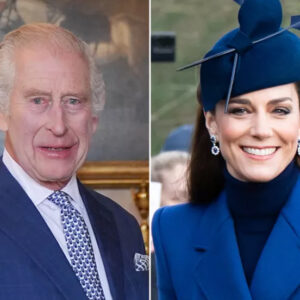Exemptions have been written into law to protect the British monarch as a private citizen, and Queen Elizabeth II is exempt from more than 160 laws, according to The Guardian.
The Guardian reported on July 14 that personalized exemptions for Queen Elizabeth II have been written into more than 160 laws since 1967, allowing her broad immunity from British laws.
Some big changes?
The above laws show that some major changes are underway in how concepts of immunity apply to Queen Elizabeth as a private citizen. The Guardian points out that while sovereign immunity previously held that the Queen could not be prosecuted or sued, which did not need to be stated in law, the principle has now been written into law and expanded clearly to include her private interests as well as her conduct as monarch.
This change would also see that not only could the Queen not be prosecuted for criminal conduct, but that on a deeper level, some conduct that might otherwise be illegal could in fact be permitted if done by her, according to The Guardian .

Queen Elizabeth stands from the balcony of Buckingham Palace during the event marking the 70th anniversary of her reign, also known as the Platinum Jubilee, on June 2, 2022.
AFP
Sovereign immunity is a centuries-old doctrine that states that the monarch cannot be prosecuted or sued civilly under the law. Its origins lie in doctrine and convention, rather than statute, and there is no law that lays down the rules that underpin the concept.
Sovereign immunity stems in part from the medieval notion that the monarch is the source of justice, and therefore can do no wrong. This right also rests on an argument that since the courts belong to the Queen, she cannot be compelled to appear in court, as she would in effect be prosecuting herself, according to The Guardian .
In addition, the concept of clearer exemptions is also being applied to the Queen’s assets and investments as a private citizen. More than 30 different laws stipulate that police are prohibited from entering Queen Elizabeth’s Balmoral and Sandringham estates without her permission to investigate suspected crimes, including wildlife crimes. wildlife and environmental pollution , a legal exemption granted to no other private landowner in the UK.
Police are also required to have Queen Elizabeth’s personal agreement before they can investigate suspected violations at her privately owned salmon and trout fishing business on the River Dee at Balmoral, where anglers are charged fishing fees of up to £630 (more than VND 17 million)/day.
Is there the Queen’s consent?
When asked about Queen Elizabeth ‘s legal immunity as a private citizen, her press secretary, Donal McCabe, accepted the government and Buckingham Palace held discussions on how The form and extent to which the bill should apply to Queen Elizabeth as a private citizen during the drafting of the law.

British Queen Elizabeth II (96 years old) at an event in London on July 12, 2022
AFP
Last year, The Guardian reported on how the Queen’s Assent process was used to allow the royal family to consider more than 1,000 laws during Queen Elizabeth’s reign before parliament was allowed to debate them. about those laws. Buckingham Palace has repeatedly stated that the Queen’s Assent is a purely formal process that does not result in significant changes to policy .
However, that claim has been undermined by documents relating to various laws passed during Queen Elizabeth’s reign which suggest that she or her representatives took advantage of the process This is to ensure personal benefits, according to The Guardian .
Relative Articles
None found





